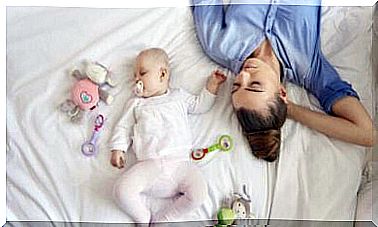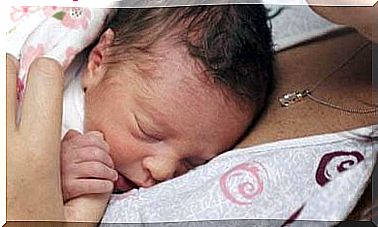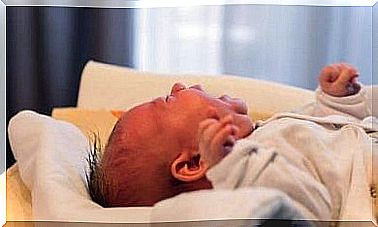Find Out Some Curiosities About Maternal Instinct
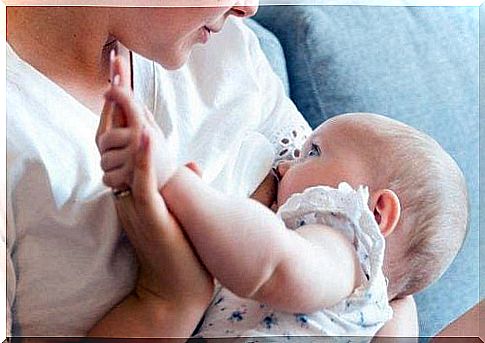
Insecurity about developing maternal instincts is a recurring fear in every pregnant woman. Before we think about becoming mothers, we can start to have doubts about our future ability to take on this role. However, when we finally find ourselves close to being moms, we can be assailed by doubts.
It is normal for us to ask ourselves questions about how our instincts will develop, once it is needed. What happens when we feel like we don’t have it? Although we talk about this very often, scientists believe that, in reality, the maternal instinct does not exist. Nonetheless, there are many women who claim to already have this tendency towards motherhood even before becoming mothers.
We often meet women in whom the sense of protection and conservation has been ingrained in them since they are very young. There are also cases in which some girls are forced to take care of their siblings, with excellent results. In this sense, we can also speak of men who develop the “maternal instinct”.
Do all women who have children develop maternal instincts?
As we know, there are many women who, even if they have children, never seem to turn into mothers. Generally, these cases occur due to cultural, social and genetic factors. For some people, taking on this important role is really difficult, due to their mental or emotional instability. However, the main cases have to do with external factors, which may not always be a justification.
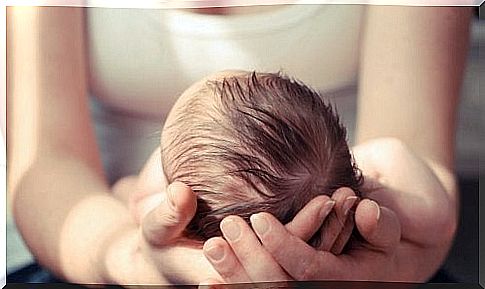
Thus, a woman who abandons her children for economic or social reasons is bound to become the target of severe criticism. Nonetheless, no one can say with certainty that her maternal instinct has not been developed. For example, speaking of the mothers of the animal kingdom, the latter could provide the greatest demonstration of the existence of the maternal instinct. Yet many animal mothers end up taking their children away from the nest.
According to experts, it is above all a question of learning. In most cases, mothers do nothing but repeat the same behavior over and over again. We probably learn to become mothers thanks to the care we receive in childhood. It is for this reason that women who do not receive this attention as children repeat the same behavior with their children.
Nonetheless, there is no reason why things should necessarily be this way. The development of the maternal instinct seems to be a reality that surpasses any trace left by a difficult childhood. In this regard, experts say that what we consider an instinct is actually a reflection of other factors. Identity, personality, culture and social interaction tend to determine the development of this phenomenon.
From a scientific point of view, it is believed that there is no biological clock capable of activating the maternal instinct from one day to the next. Consequently, how can we know if it will develop in us? Is it an innate ability?

Is it possible that I do not have the maternal instinct?
Assuming that the maternal instinct exists, it is however possible that we do NOT have it. Many women do not wish to become mothers and do not see themselves in this role. However, this does not mean that they do not know how to treat a baby or that, in general, they are unable to take care of a child.
In this regard, it is worth pointing out that, even if we have not thought about it before, we know that it is possible to become a mother. Without planning ahead, we women know that day can come. That’s when hormones come into play, conspiring to make us more susceptible.
From the moment we become pregnant, our body changes and hormones alter our emotions. This phenomenon causes the mother to feel a sense of attachment towards the baby. An obvious example occurs in the cases of mothers who offer themselves to support a surrogate gestation and who then regret their choice. In other words, a woman who has decided to rent her belly develops affection for that baby who is not hers and whom she has decided to deliver at birth.
Consequently, it can be said that a series of internal internal and external factors contribute to making the woman develop the so-called “maternal instinct”. The cases of women who believe they do not have it are due to the fact that, in their lives, circumstances have prevented its development. Consequently, there is no need for fear of not being able to play this role.





